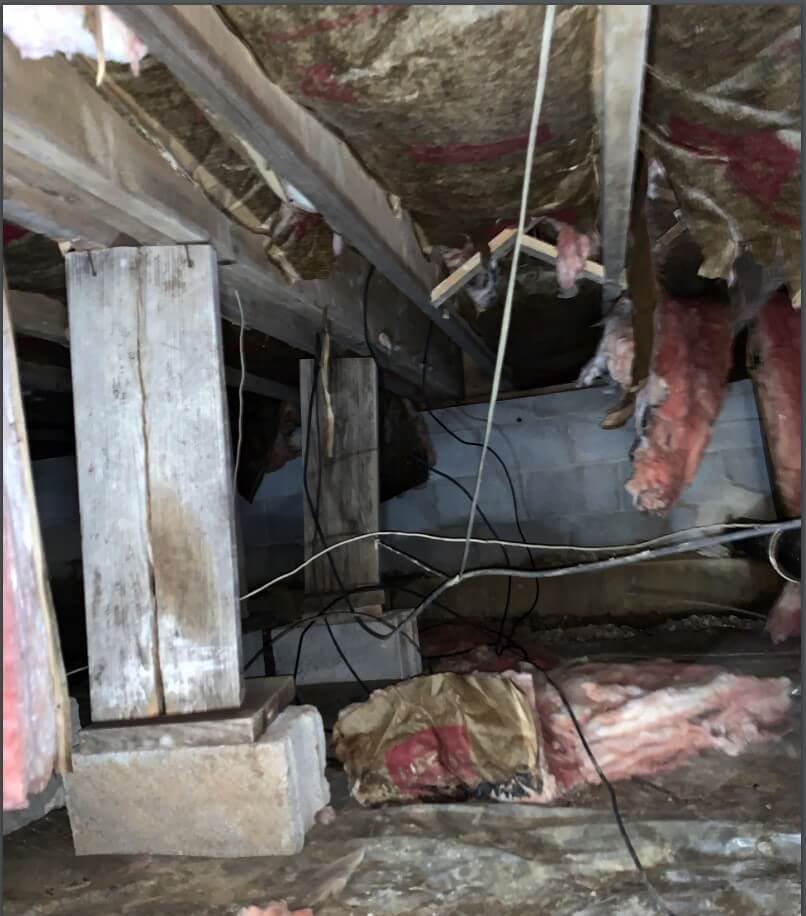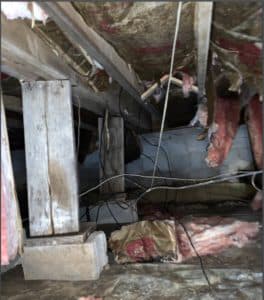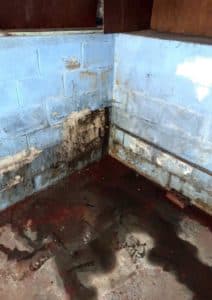
When you’re buying a house, you can feel like a trained animal at the circus. You jump through countless hoops, there’s a lot of show and fuss, and you just want it to be done so you can relax.
Acculevel has been helping people repair and preserve their homes since our founding in 1996. We often get calls from realtors and potential home buyers who have concerns about issues revealed during the home inspection process. This article focuses on the most frequently asked questions from that particular audience.
If you don’t live in our service area, you may still find value in this piece; all reputable contractors have similar procedures during the evaluation and estimation process. But the warranty question (number 4) is entirely specific to our business practices, so you may want to skip that section.
Having said that, please do not skip the topic of warranties with the contractor you select! You want to make sure you are working with a solid company who stands by and vouches for their work. If you need more suggestions about how to choose a contractor, we have a downloadable guide of questions you should ask a contractor, here.
 This photo was taken by an Acculevel project advisor during a free estimate appointment. This crawl space needs multiple repairs.
This photo was taken by an Acculevel project advisor during a free estimate appointment. This crawl space needs multiple repairs.
We want to meet with you (both realtor and buyer) at the property. We don’t expect you to follow us into the crawlspace, of course. But if there are items to point out in the foundation, in the wooden flooring structure or your basement, we want you there to see them for yourselves.
We want to clearly explain the warning signs that we see, the impact these issues can have, and for you to understand why we recommend a specific repair method.
When you don’t attend the appointment, you have to rely on the written statement that the project advisor emails to you. This can be very constricting because you’re only given a limited explanation. You deserve the full details of our assessment, which explains not only what we recommend, but why we recommend it.
If you don’t know the root cause of the issue, you’re going to have a more difficult time negotiating successfully with the seller.
Additionally, if you have more questions, you then have to email or call your project advisor for more information. In real estate transactions, there often isn’t time to play phone tag or follow-up. No homebuyer should have to make a major investment decision without all the details.
Acculevel has three major principles that we adhere to when scheduling an appointment for any property that is for sale.
When a home inspector reviews a property, they evaluate each section individually. For example: when they check the HVAC system, they turn it on to test it, then grade its performance.
But contractors have to review a home as a collection of integrated systems. For example, if you take pictures of the water in the crawl space, all you’re doing is documenting the problem. We don’t have enough information to accurately assess the problem and recommend solutions.
Let’s explore that example further: if a home has water in the crawl space, that’s clearly a drainage problem. But it may not be the only problem. You may have other consequences that need to be reviewed. What is the source of the water? Is mold developing? Have the floor joists or sill plates been damaged?
To accurately gauge and diagnose the full scope of repairs, the contractor has to go into your crawl space and inspect it, go outside the home to review the guttering and downspouts, and inside the house looking at how the floor may be sagging.
 This photo was taken by an Acculevel project advisor during a free estimate appointment. Water is getting into an unfinished basement.
This photo was taken by an Acculevel project advisor during a free estimate appointment. Water is getting into an unfinished basement.
The answer to this question is hidden in the last section. One of our guiding principles is to treat each customer’s house as if it were our own. If the home in question has mold in the crawl space, but we only quote for mold treatment and ignore what is allowing the mold to grow, we are not providing a true solution.
If we don’t address the water getting into the space that feeds the mold, we’re essentially putting a band-aid over a wound that needs stitches. As a respected and reputable repair company, we believe it is our right and responsibility to provide a complete solution, not a stop-gap measure.
If you are buying a home we have repaired, but the seller can’t find his/her paperwork, the seller needs to contact us. Once we review our records, we can generate new warranty certificates as appropriate.
Likewise, if you are the buyer and you’d like to ask us questions about the repairs done, the seller will need to contact us. We can only disclose details of the repairs to the homeowner. If the homeowner grants us permission to share the information with you, we are happy to do so.
Warranty transfers are a simple process. The new homeowner calls Acculevel, explains that they bought the home from a previous customer, and we look up the records. If you can give us the original customer’s name, that’s ideal. But we can also search by address.
Once the records are located and verified to be under warranty, we simply add an entry to the file that you are now the homeowner (entry will include your name, phone number, and email address). If you don’t have a copy of the warranty certificate(s), we can send these to you. That’s the full procedure, designed to be quick and painless!
Buying a home is often the single largest investment a person makes in their lifetime. We try to be as flexible as possible, to reduce the stress that occurs during this transaction. We understand that buying or selling a home is often complicated, with inspections, appraisals, mortgage discussions, etc.
It’s very common in real estate for the buyer and seller to negotiate the cost of any needed repairs, and we try to accommodate your arrangements whenever possible. Are the buyer and seller splitting the costs and need to pay separately? That’s fine. Is the work going to be paid out of closing costs? That is also fine. Is the seller paying out of closing costs, while the buyer is financing their portion? We can work with that, too!
The important thing is that you communicate with your project advisor, so that once the contract is signed, we can fit you into the installation schedule. It’s usually easier for buyers to have the repairs done while the property is vacant. Moving into a new place is challenging enough without having work crews in the mix.
If you are reading this article before your home inspection is done, we have guidelines for whom to call if your inspection flags problem areas for evaluation.
Would you like more information about preparing a home for installation? We often provide this blog to our customers before installation.
If you have questions about warranties and their coverage, we have an overview in this article. You may be surprised by the true definition of a “lifetime” warranty.
Do you know what insurance plans normally cover? We talk about insurance coverage for foundation repairs and flooding in this blog entry. Because this is not our area of expertise, we consulted with our own insurance agent for this topic.
The first step is to look for an experienced company in the appropriate repair field and make an appointment. Before you sign a contract for any service, always verify the company is reputable, insured, and accredited by the Better Business Bureau.
If you live in Indiana or the surrounding states, contact Acculevel. Established in 1996, we specialize in foundation repairs and waterproofing basements and crawl spaces. One of our friendly office staff will schedule a free estimate for you with an experienced project advisor. They will evaluate the areas of concern and recommend the best course of action for you, to keep your new home strong and healthy for years to come.
[DISPLAY_ULTIMATE_SOCIAL_ICONS]